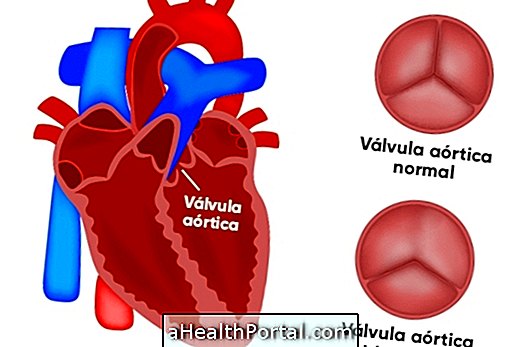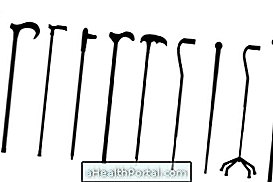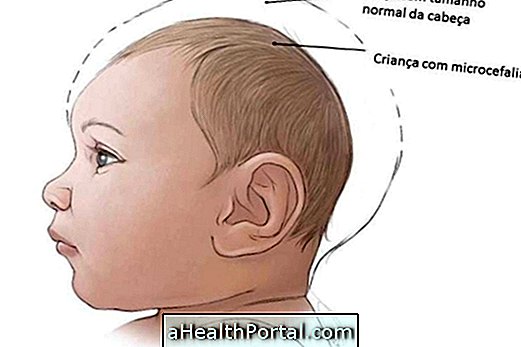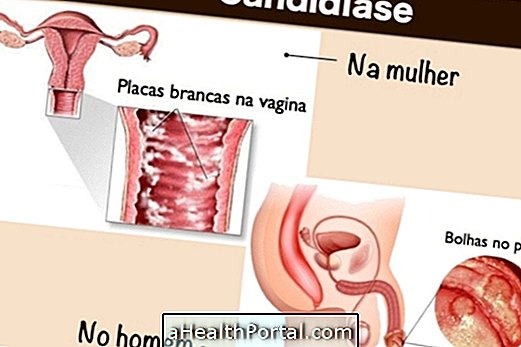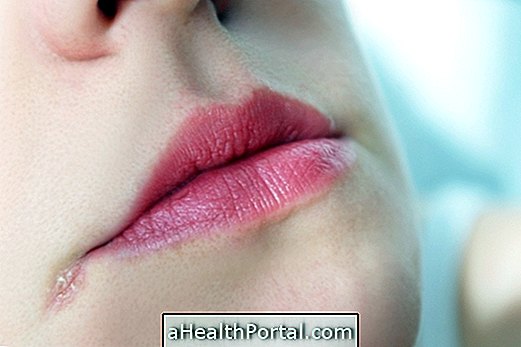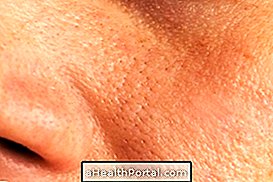Tinnitus in the ear, also known as tinnitus, is an uncomfortable sound perception that can come in the form of wheezes, whistles, cicadas, waterfalls, clicks or clicks, which may be mild, heard only during silence, or intense enough to persist throughout the day.
It can affect about 15% of people throughout life, becoming more frequent with the passing of the years, being common in the elderly, and is caused mainly by injuries inside the ear, due to situations like hearing noises or loud music, ear infections, head trauma, drug intoxication or aging itself, for example.
The tinnitus for healing, depending on its cause, however, there is no medication to solve the problem, and a treatment involving the use of hearing aids, sound therapies, sleep improvements, feeding and relaxation techniques is recommended., as alternatives to improve symptoms, and are recommended by the otorhinolaryngologist.

What causes tinnitus in the ear
The main causes leading to tinnitus in the ear are related to hearing loss, both by the deterioration of the sensory cells of the ear, located in the cochlea, and by conditions that alter the conduction of sound, and can be caused by:
- Aging;
- Exposure to intense noise;
- Listen to loud music often, especially with headphones;
- Cerumen buffer in the ears.
Other causes may include:
- Use of toxic drugs for the ear, AAS, anti-inflammatories, chemotherapeutics, antibiotics and diuretics, for example;
- Inflammation in the ear, such as in labyrinthitis, and in these cases it is common to have associated dizziness. Learn how to identify and treat labyrinthitis;
- Tumors in the brain or ear;
- AVC;
- Disorders in metabolism, such as changes in blood glucose, cholesterol or high blood pressure;
- Hormonal changes, such as elevation of thyroid hormones;
- Changes in the temporomandibular joint (TMJ);
- Psychogenic causes such as anxiety and depression.
In addition, ringing in the ear can also be caused by changes in the structures around the ears, which include situations like spasms in the ear muscles or the pulsation of blood vessels in the region, for example.
How to confirm
To identify the cause of tinnitus in the ear, the doctor will evaluate the symptoms presented, such as the type of tinnitus, when it appears, how long it lasts and the associated symptoms, which may include dizziness, imbalance or palpitations, for example.
The doctor should then look inside the ears, jaw, and blood vessels of the area. In addition, imaging tests such as computed tomography or MRI may be necessary, which can more accurately identify changes in the brain or in the structure of the ears.
How is the treatment done?
To treat tinnitus in the ear it is necessary to know the cause of tinnitus. Sometimes the treatment is simple, and may include waxing by the doctor, use of antibiotics to treat infection, or surgery to correct ear defects, for example.
However, in some cases, treatment is time-consuming and more complicated, and may require a set of therapies that may help alleviate symptoms or decrease the perception of tinnitus. Some of the options include:
- Use hearing aids to treat hearing loss. Understand when it is necessary to use hearing aids and the main types;
- Sound therapy, with the emission of white noise through specific devices, which can help decrease the perception of tinnitus;
- Use of anxiolytics or antidepressants to reduce anxiety;
- Use of vasodilator remedies such as betaysteine and pentoxifylline, for example, that may help improve blood circulation to the ear and decrease tinnitus;
- Treatment diseases that may be triggering the symptoms such as high cholesterol, diabetes or high blood pressure;
- Favor a quality sleep;
- Maintain a healthy lifestyle and avoid consumption of trigger substances, such as caffeine, alcohol, cigarettes, coffee and artificial sweeteners, such as aspartane.
In addition, alternative therapies such as acupuncture, music therapy or relaxation techniques may be helpful in decreasing the sensation of tinnitus. Learn more details on how to treat tinnitus in: Treatment for Ringing in the Ear.

